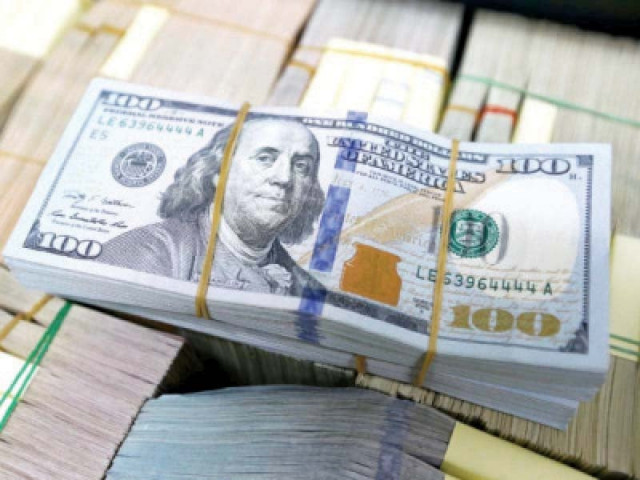Govt requests $2b loan rollover
Underreports borrowing by $7b by excluding IMF, some Chinese loans

Pakistan has made another request to China for the rollover of $2 billion worth of debt maturing soon but it forgot to book Chinese and International Monetary Fund (IMF) loans in the budget, underreporting foreign borrowing by $7 billion for the next fiscal year.
Finance Minister Miftah Ismail admitted on Saturday that the exclusion of IMF and some Chinese loans was a mistake that would be rectified. Once the correction is made and duly notified to the National Assembly, Pakistan’s foreign economic assistance plan for fiscal year 2022-23 will jump to a record $24 billion.
The government has not included $4 billion of China’s State Administration of Foreign Exchange (SAFE) loans and a minimum $3 billion of IMF loans in its foreign receipts. The IMF receipts are linked with the revival of its bailout package.
A Chinese SAFE deposit loan of $1 billion is maturing before the end of current month while another $1 billion loan will mature before the end of next month.
Prime Minister Shehbaz Sharif has formally requested the Chinese government to roll over both the maturing loans, according to officials.
Earlier, in March this year, China rolled over $2 billion worth of SAFE deposit loans.
However, the Ministry of Finance did not show these $4 billion loan rollovers in the next fiscal year’s borrowing plan. Budget books showed that the total external receipts were estimated at $17 billion, or Rs3.13 trillion, for fiscal year 2022-23.
These loans are taken for budget support, building foreign exchange reserves and project financing.
However, after including $4 billion of Chinese SAFE deposit loans and the remaining $3 billion of IMF loans in the external receipts, the borrowing plan will increase to $24 billion in the next fiscal year.
Finance Minister Miftah Ismail had expressed hope that the IMF would increase the loan size from a total of $6 billion to $8 billion.
An amount of $3 billion has already been disbursed by the global lender. In case the loan size is increased to $8 billion, the government will have to show borrowing of $5 billion from the IMF in its annual plan.
Sources said that a lot of efforts were needed to convince the IMF to revive the loan programme, as some of the expenditure and revenue measures announced in the budget were not in line with the IMF’s expectations. Authorities foresee hard bargaining with the IMF team in the coming days.
They said that the government may have to reverse some of the budgetary measures to seek the IMF’s nod for the budget.
The government has shown $7.5 billion, or Rs1.4 trillion, in foreign commercial loans in its next year’s borrowing plan. These are largely Chinese commercial loans.
Last week, the finance minister announced a deal with China for the rollover of $2.2 billion, or RMB 15 billion, of Chinese commercial loans. Pakistan is still waiting for the disbursement, which it had hoped to receive within days after the deal.
During the visit of former prime minister Imran Khan to Beijing in February this year, Pakistan had requested a total lifeline of $21 billion that included rollover of $10.7 billion of both commercial and SAFE deposit loans.
These included the rollover of SAFE deposits of $4 billion and commercial loans of $6.7 billion on maturity.
Pakistan has only $9.2 billion in foreign exchange reserves as of last week and its currency is fast depreciating. The rupee fell to the lowest level of Rs203 to a dollar in the inter-bank market.
Pakistan had also requested to increase the size of the currency swap facility from $4.5 billion to $10 billion – an additional borrowing of $5.5 billion, which the Chinese authorities did not approve at that time.
Budget documents showed that Pakistan had planned to float $2 billion worth of international Sukuk and Eurobond in the next fiscal year. It can get a better price only if the IMF programme is restored as foreign investors fear default on payments of previous bonds.
The government is expected to get a $1.2 billion loan from the Islamic Development Bank for buying oil on deferred payments and $800 million in oil facilities from Saudi Arabia in the next fiscal year.
It has also budgeted $1.5 billion in project financing. Programme loans are estimated at $4 billion in the next fiscal year, including $1.6 billion on account of Naya Pakistan Certificates – a product of the previous PTI government.
Published in The Express Tribune, June 12th, 2022.
Like Business on Facebook, follow @TribuneBiz on Twitter to stay informed and join in the conversation.


















COMMENTS
Comments are moderated and generally will be posted if they are on-topic and not abusive.
For more information, please see our Comments FAQ